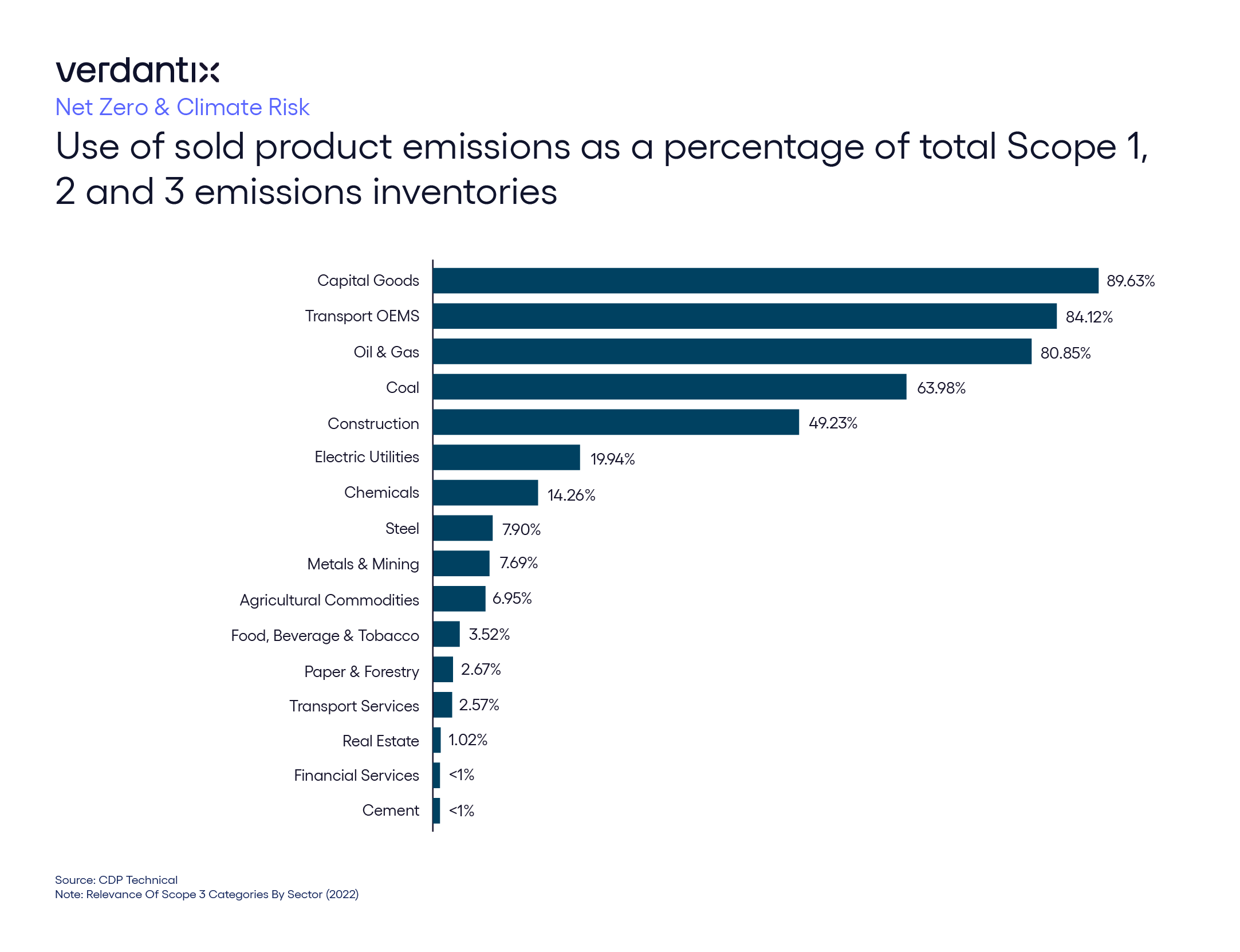The Elephant In The Room: Why Firms Need To Start Tackling Use Of Sold Product Emissions

Alastair Foyn
For many firms, if you’re not tackling the emissions generated by people using your products, you’re just not tackling your emissions. This is, today, a story of many sinners – and few saints.
Downstream Scope 3 emissions categories have been largely ignored by firms’ emissions management functions, except for Category 15 investment emissions. These categories, including Category 11 Use of Sold Product emissions, are notoriously hard to account for and even harder to abate. Whilst managers prefer to address more easily accountable upstream categories such as Category 6 Business Travel and Category 7 Employee Commuting, data from the Carbon Disclosure Project (CDP) show that Use of Sold Product emissions can dominate emissions portfolios, especially in industries such as capital goods (manufacturing), fossil fuels and construction. By comparison, business travel and employee commuting typically represent 0.1% and 0.2% of a firm’s total Scope 3 emissions, respectively.

Whilst traditionally out of sight and out of mind, Use of Sold Product emissions are beginning to garner substantial attention as awareness of their prevalence becomes more widespread. For example, in early 2023, Airbus committed to an SBTi-validated 46% reduction in its Use of Sold Product emissions by 2035. Additionally, technology giants such as Apple, Google and Microsoft have launched initiatives to reduce their Use of Sold Product emissions through ‘carbon aware’ software and clean charging technology. For Apple and Microsoft, Use of Sold Product emissions account for 24% and 28% of their total emissions portfolios, respectively.
As organizations embark on their decarbonization pathways, and near-term targets approach, firms can no longer ignore this huge source of emissions. Proactive recognition and engagement will allow them to gain a market advantage, forging industry leaders in decarbonization practices. For more detail on managing Use of Sold Product emissions, see Verdantix Strategic Focus: Strategies For Reducing Use Of Sold Product Emissions.
About The Author

Alastair Foyn
Analyst





